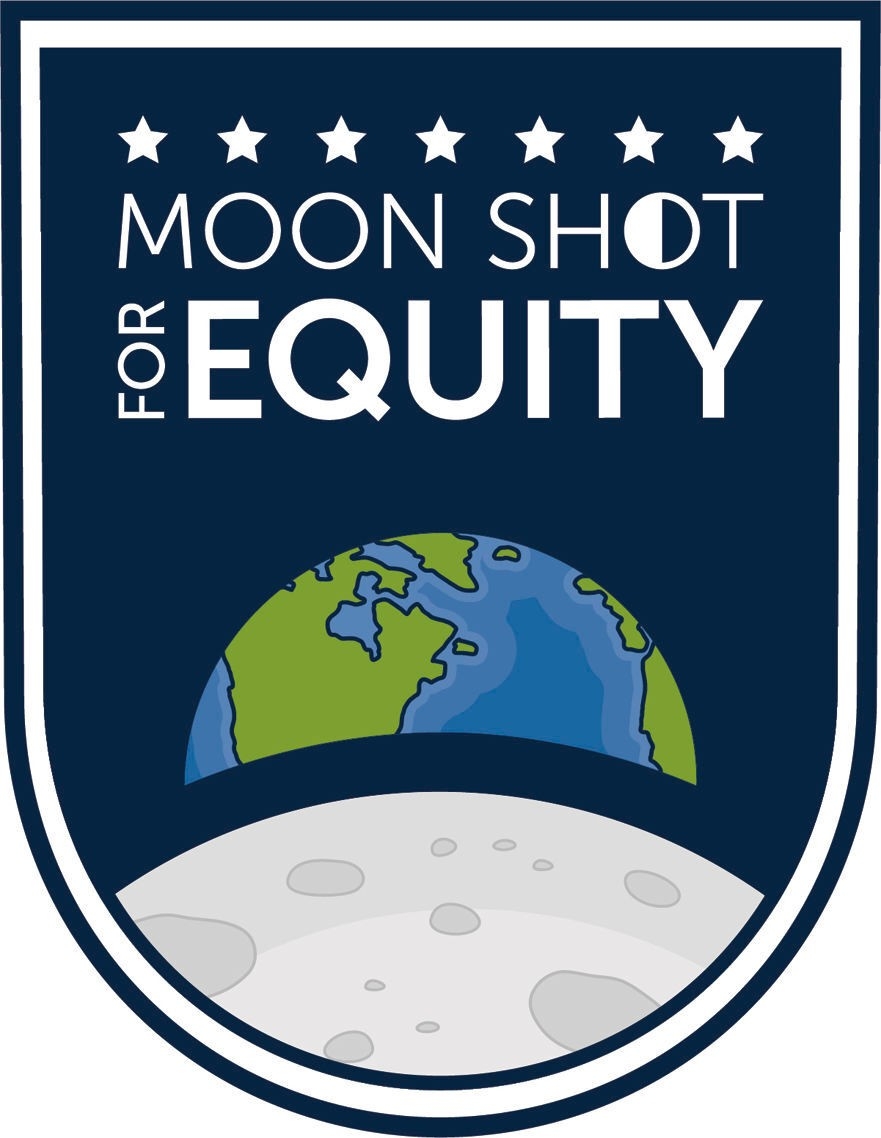
To fulfill the promise of student success we must eliminate persistent equity gaps at our colleges and universities. Our communities and our country will thrive only if all people have a fair and equal chance to gain the knowledge and skills necessary to succeed.
Today that means helping many more Americans complete college degrees and credentials of value.
The Moon Shot for Equity is a collaborative project led by education firm EAB, that aims to close equity gaps within regional clusters of two- and four-year colleges and universities by 2030. Schools that join the project commit to working together, and with EAB, to help more underrepresented students of color and other historically underserved populations graduate from college. The project was first launched in 2020 with NKU joining in 2021.
Members of the Moon Shot for Equity project are separated into regions. NKU is a member of the Greater Cincinnati/Northern Kentucky region. Each region must commit to deploying 15 research-based best practices and policies proven to substantially boost equity and are at the same time mutually beneficial for their student populations’ needs. Many of the Moon Shot for Equity’s practices align with NKU’s Success by Design framework.
To fulfill the promise of student success, we must eliminate persistent equity gaps at our colleges and universities. Our communities and our country will thrive only if all people have a fair and equal chance to gain the knowledge and skills necessary to succeed.


The Moon Shot for Equity is a collaborative project led by education firm EAB, that aims to close equity gaps within regional clusters of two- and four-year colleges and universities by 2030. Schools that join the project commit to working together and with EAB to help underrepresented students of color and other historically underserved populations graduate at the same rate as white students.
Additionally, each region must commit to deploying best practices and policies proven to substantially boost equity and are at the same time mutually beneficial for their student populations’ needs. Additionally, each college must agree to collect and share data, convene with the network quarterly, and adhere to the initiative and implementation timetable.


Eighty percent of Americans now live in cities or suburbs. We must focus on these regions in order to make the greatest impact. Metropolitan areas provide the conditions necessary to form local collaborations with government, community organizations, and employers that help boost college attainment.
Regional collaborations between schools are also critical for establishing common academic pathways that allow students to move between two- and four-year institutions and earn their degrees more quickly and efficiently. Streamlining credit transfer between institutions and accelerating time to degree are significant aspects of the equity challenge.







